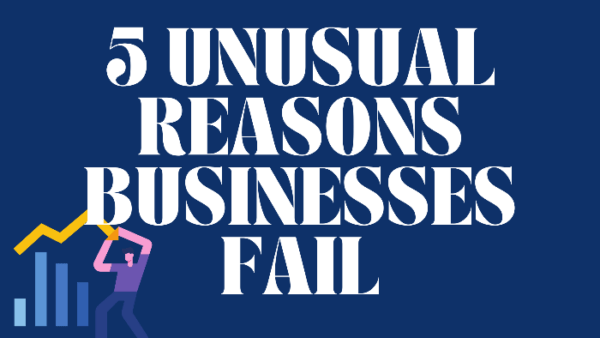
5 Unusual Reasons Businesses Fail
The dream of starting a business is exciting, but the road to success is unfortunately paved with challenges; 20% of businesses fail within their first year, with 60% failing within three years. But why do so many close their doors so soon after opening them?
Aside from having a weak business plan or simply running out of money, there could be some things you’re doing to set yourself up for failure. From trying to do too much too fast, to refusing to adapt, HLB Global CEO Marco Donzelli explains five unusual reasons businesses fail.

GROWING TOO FAST
While growth is positive, expanding too fast can have the opposite effect. When a business grows too quickly or diversifies into new or unrelated areas, it can lead to a loss of focus and ultimately, financial instability. Rapid expansion often requires increased capital, operational resources, and additional staff, and if the growth outpaces how quickly the business can scale up their resources, it can be a big strain financially. A strong brand identity is crucial in maintaining existing customers and attracting new ones, and expanding too broadly can dilute that brand identity, leading to a loss of trust and brand loyalty from customers.
Over-expansion can distract the business owners and leaders from what made the business successful to begin with, diverting attention to new ventures and dealing with the issues that expansion brings, instead. Losing focus on the core of the business can lead to opportunities being lost, and priorities being neglected.
IGNORING COMPANY CULTURE
A bad company culture can have serious consequences for the business. A toxic work environment will lead to high turnover of employees, low productivity, and poor service for your clients and customers. Frequent turnover of staff increases recruitment and training costs, as well as disrupting the dynamic in the team – and you might also find it difficult to attract skilled candidates if your company is known for having an unhealthy culture.
This negative culture also stifles innovation, as employees who feel unsupported and undervalued might hesitate to suggest new ideas or take initiative for fear of criticism; without this creative energy, businesses miss opportunities to adapt and develop.
LACK OF STRONG LEADERSHIP
Effective leaders are essential in making key decisions that guide the business forward. Without strong leadership, those decisions can become inconsistent and poorly informed, leading to missed opportunities, poorly managed operations, and financial losses.
Leaders provide a clear vision for the business, aligning the efforts of the team towards a common goal. More ‘gentle’ leadership, without firm direction, can mean that the team lacks purpose and clarity about their responsibilities, which can mean that progress is slow, confusing, and inefficient. Without a strong leader, the foundation of the business can be undermined by a lack of strategy, adaptability, communication, and development – things that are crucial for growth and success.
OVERDEPENDENCE ON ONE CLIENT
Putting all your eggs in one basket and relying solely on one client can be risky. Holding one major client often brings in substantial revenue, which is why you’re so committed to them, and this income might appear to validate the business plan and give opportunities to scale up. But it can leave you vulnerable to problems that are out of your control, like that client moving elsewhere, reducing their budget, or going out of business themselves.
FAILURE TO ADAPT
Failing – or refusing – to keep up with changes in the industry will quickly render your services or products outdated. From technological advancements like AI, to economic shifts, and changes in the behaviour of your customers, the business landscape in any industry is always changing.
Whether it’s a fear or change, or simply stubbornness, businesses that fail to adapt risk being left behind and becoming obsolete. Inflexibility will prevent your business from grasping new opportunities and responding quickly to new trends; adaptability is the key to staying relevant and thriving in a changing world.














































